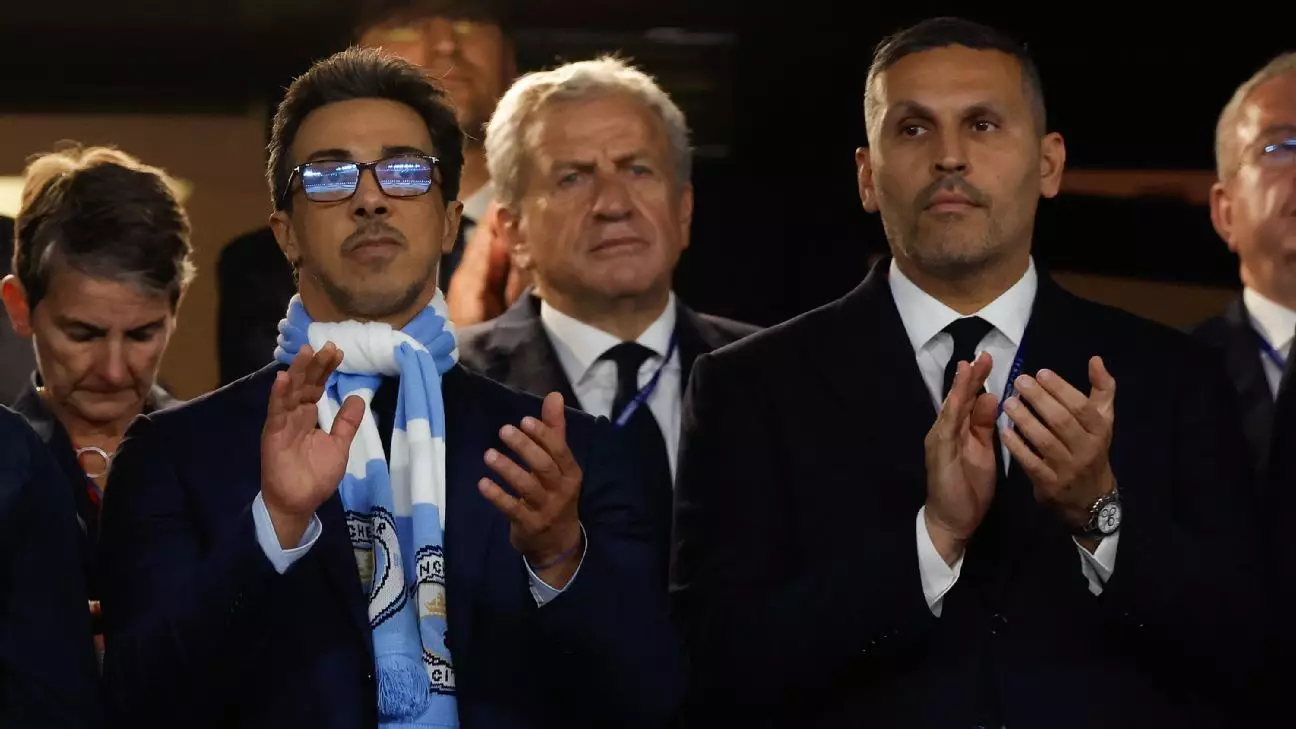Manchester City, the dominant force of English football, finds itself at a crossroads that could reshape its future. The long-anticipated judicial proceedings regarding the 115 charges of alleged financial misconduct commence this month, a significant date in the sports calendar. This trial, starting on September 16, represents more than just a legal battle; it is a test of the integrity and credibility of both Manchester City and the Premier League. With reputations at stake, the consequences for a guilty verdict are daunting—potential financial penalties, substantial points deductions, and even the risk of expulsion from England’s top division loom large on the horizon.
To understand the gravity of the situation, one must consider the meteoric rise of Manchester City since its 2008 acquisition by Sheikh Mansour bin Zayed al Nahyan. The club has transformed from a struggling entity into a powerhouse, achieving monumental success under the stewardship of Pep Guardiola. Winning 21 major trophies in just over a decade has drastically changed the club’s narrative, making it one of the most formidable competitors in football history. However, now, this success is shadowed by serious allegations that threaten its legacy.
At the core of this controversy are allegations that City manipulated financial records to disguise the true nature of its commercial revenues, potentially in violation of the Premier League’s stringent regulations. The origins of these claims can be traced back to 2018, when leaks from confidential emails were first published by the German publication Der Spiegel. These documents reportedly highlighted attempts by City executives to obfuscate financial dealings. While City vigorously contests these allegations, maintaining that the leaked material is misrepresented, the ramifications of these charges are anything but trivial.
The Premier League’s case against City alleges multiple infringements of financial regulations spanning nearly a decade, from 2009 to 2018. The crux of the charges includes failures to accurately report financial information and to comply with UEFA’s Financial Fair Play rules. Unlike UEFA, which could not pursue actions beyond its statutes of limitations, the Premier League’s lack of such constraints enables it to prosecute these claims vigorously. With 54 specific counts against the club concerning inaccuracies in financial reporting and an additional 35 allegations of non-cooperation in the investigations, the severity of the situation becomes painfully clear.
The forthcoming hearing is poised to unfold privately, protected by non-disclosure agreements that limit public insight into the proceedings. Both sides—Manchester City and the Premier League—are equipped with formidable legal representation, with City employing renowned barrister Lord David Pannick KC, known for his exorbitant hourly fees, while the Premier League will counter with Adam Lewis KC, also a distinguished legal figure. The hearing is anticipated to stretch over ten weeks, reflecting the complex nature of the case and the significant implications for both parties.
Speaking ahead of the hearing, Guardiola expressed relief that the club’s fate would soon be determined by an impartial panel, reinforcing the notion of presumed innocence until proven guilty. His comments underscore a crucial aspect of this saga: the legal proceedings not only revolve around financial scrutiny but will also influence perceptions of fairness and integrity in professional sports. Guardiola’s optimism contrasts sharply with the heavy atmosphere surrounding the implications of the charges—a reminder that in the world of elite sports, success is intrinsically tied to adherence to rules.
Should Manchester City emerge victorious, it would represent a significant retreat for the Premier League, raising questions about its ability to enforce regulations effectively. A successful defense could magnify the perception of inconsistency within the league’s disciplinary measures and possibly incite calls for reform regarding the enforcement of financial rules. Conversely, a guilty verdict could justify the Premier League’s position and bolster its reputation for upholding competitive fairness, yet the fallout could also be disastrous for City—altering their operational structure, financial health, and overall standing in football.
As the process unfolds, Manchester City’s current roster, as well as Guardiola’s managerial tenure and future contracts, hang delicately in the balance. The outcomes of this saga are likely to reverberate across the football world for years to come. Whether City faces a massive fine, unprecedented punitive measures, or even expulsion from the league, the implications are profound. The stakes are undeniably high, and as this legal battle commences, it could redefine the contours of modern football, challenging clubs to reconsider the lengths they go to in pursuit of success. The forthcoming weeks will be crucial, as both City and the Premier League brace for what could be one of the most seismic events in sporting history, where everything from ambition to integrity will be tested.

